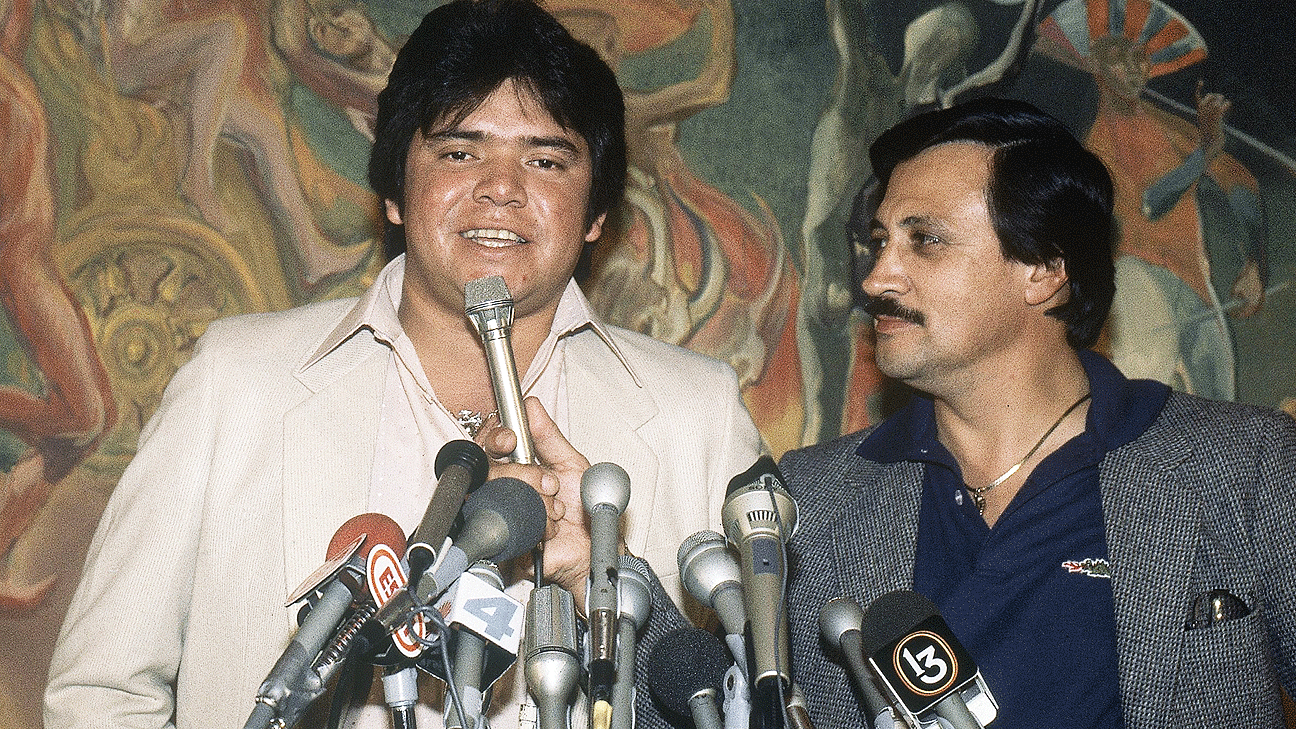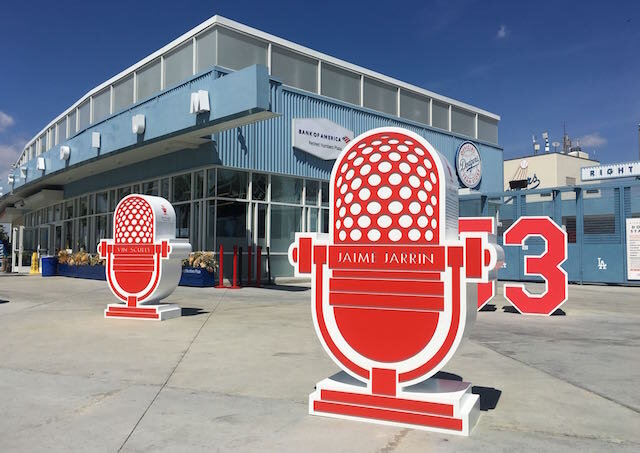Dodgers’ Long Time Spanish Broadcaster to Retire
Jaime Jarrín is the longest tenured active announcer in all of baseball. He has been the Spanish speaking radio announcer for the Dodgers since 1959, today he announced he will be retiring after the 2022 season. Everyone knows Vin Scully, but Jaime Jarrín has been equally as important for the Dodgers.
When the Dodgers moved to Los Angeles in 1958 Jarrín was the news and sports director at the radio station that had the broadcast rights to the Dodgers’ games. He joined the broadcast team the following season. For the first six years broadcasting for the Dodgers, they did not travel with the team. This was also at a time before MLB games were prominently seen on television, so they would listen to the English broadcast and have to translate it into Spanish in order to call the games. After 14 seasons with the team, Jarrín became the number one Spanish speaking broadcaster for the Dodgers.
A younger Jaime Jarrín assisting Fernando Valenzuela during an interview in the 1981 season.
When Jarrín first started, roughly 4% of the Dodger stadium crowd was hispanic. Today, the Dodgers more closely resemble the city’s demographics, as 42% of fans in the stands are Hispanic thanks in large part to Jaime Jarrín and the year 1981. In Los Angeles, 1981 was known for “Fernandomania”. Fernando Valenzuela, the Rookie of the Year and Cy Young Award winner in the NL, burst onto the scene as a 20 year old lefty from Mexico. Fernando started the year 8-0 while throwing 7 complete games, 5 of them shutouts, and having a 0.50 era over 72 innings. He was the star that the hispanic population of LA needed, and with Jaime Jarrín calling every game he pitched, the sport of baseball grew significantly in LA. Dodger stadium would be packed every game he pitched, the fans all wearing shirts with his name on the back, or wearing the bootleg jerseys that they could buy all over the city. Banners with his name would be seen in the crowds, on peoples’ houses, and all across the city. Fernando was a hot commodity for the press and media members of every baseball club, and with Valenzuela not speaking English, Jarrín served as his personal translator. Every interview that Fernando had with Jaime standing alongside him, helped connect Jarrín to the English speaking Dodgers fans as they did not listen to his broadcasts. 1981 was capped off by a Dodgers World Series championship; Jarrín called every game of that season and the playoffs. From 2003 to 2015 Fernando and Jarrín sat together in the broadcast booth until Fernando moved to color commenting for the 2015 season.
In 2018 the Dodgers retired a microphone for the legendary broadcaster, one can be seen from the field while another is put outside the stadium alongside the other retired numbers.
For 22 seasons from 1962-1984 Jarrín did not miss a game, covering over 4,000 straight Dodgers games until he stopped so he could cover the 1984 Olympics that took place in LA. Since starting for the Dodgers he has called 19 All-Star Games and 25 World Series; he was also the play-by-play announcer for the first World Baseball Classic in 2006. In 1998, the Baseball Hall of Fame awarded Jarrín with the Ford C Frick Award, the highest award for baseball announcers. He is only the second hispanic broadcaster to receive this award. He has a microphone retired at Dodger stadium to honor his work and legacy, and he has been with the Dodgers since their time in Los Angeles started. Remarkably, after his 63rd year he will be hanging it up. The impact he has had on the hispanic community has been immense; you can see it by taking a stroll through the ballpark and seeing pictures of him throughout, and by seeing the large number of Hispanic fans that grew up listening to him on the radio. Dodgers fans have been blessed to have had two Hall of Fame broadcasters throughout their time in LA. Jaime Jarrín may be less well known than Vin Scully, but he is no less important to the city.
References
mlb.com
npr.org
espndeportes.espn.com


